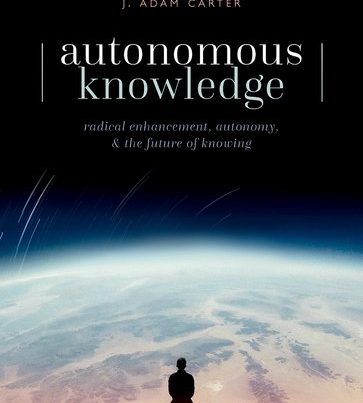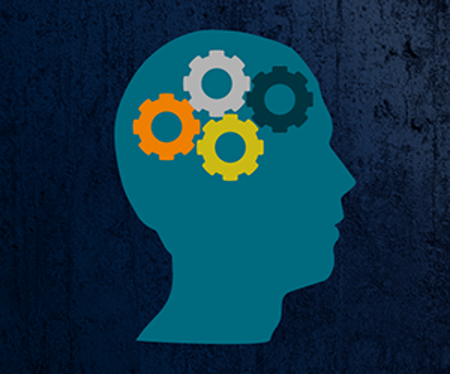Event details
Date: August 25-27, 2021
Format: Online attendance
Slides and recordings
Please find the links to the slides in the program here. Click on the titles of the presentations to download the slides.
The recordings of the seminar can be found here. Only some recordings of day 2 are not available.
Description
Summer Seminar on Research Integrity: Progress Reports and Future Directions.
Our aim is to think together about the future directions of research integrity. Together with experts we will review initiatives that have been designed to foster responsible conduct of research, policies and guidelines that can strengthen institutions in holding research integrity in high regard and also how journals can contribute to integrity in publishing research.
The Summer Seminar offers a great variety of interactive lectures, with attention for learning about the relevance of different research integrity tools, alongside keynote speeches. We conclude each day by an interactive debate on what should be addressed next.
The seminar will be offered in an online-only format. You can attend the seminar through live streaming.
Join us during our this interactive Summer Seminar with experts from around the world, by registering here.
Program
The three-day program is as follows: the first day we will discuss tools that researchers could use themselves to foster integrity such as preprints, post-publication peer review, preregistrations and replication. We invite participants to try out these tools themselves and offer workshops on making a responsible publication plan. Day two focusses on policy-related initiatives and concentrates on how institutions could implement these initiatives themselves. On the third day, we will zoom in on publishers and discuss the epistemology of publishing as well as strategies for how publishers can deal with a changing publication system. Every day before lunch, 3 to 4 researchers shortly pitch about new developments, recent research or tools in research integrity. At the end of each day, there is a panel discussion on the topic of the day.
Please find the program here. Click on the titles of the presentations to download the slides.
Speakers
Dr. Natalie Evans: The embassy of Good Science. The Embassy of Good Science is an online initiative that brings together, and makes smart connections between, relevant research integrity guidelines and regulations, cases and scenarios, and teaching materials. The platform provides practical information about how to apply norms and principles in everyday practice and how to address them in teaching. In this session, we will describe and demonstrate The Embassy’s value for practice, education and policy. Dr. Natalie Evans is an Assistant Professor at the Department of Ethics, Law and Humanities at AmsterdamUMC.
Dr. Maura Hiney: Developing evidence-based guidelines and SOPs for ensuring research integrity – the SOPs4RI project. The European Code of Conduct for Research Integrity provides a framework for developing and implementing national and local codes and guidelines on all aspects of research integrity. Having such a framework is an excellent starting point, but devising guidelines and processes (SOPs) for local implementation is not always straight-forward. To help to address this translation of policy to practice challenge, the EU-funded SOPs4RI project is working to develop an online, freely accessible and easy-to-use ‘toolbox’ that can help European Research Performing Organisations and Research Funding Organisations to cultivate research integrity and reduce detrimental practice. The ‘toolbox’ will provide an inventory of relevant Standard Operating Procedures (SOPs) and Guidelines that RPOs and RFOs can draw on when developing governance arrangements promoting strong research integrity cultures. Dr. Maura Hiney holds a PhD in Molecular Diagnostics and Epizootology from NUI Galway and is also a qualified nurse.
Prof. Mariëtte van den Hoven: The impact of positive approaches towards RCR education in practice. In her (interactive) talk titled she will address both the teaching philosophy that RCR education should pro-actively approach students and researchers via education, as well as that some data are shared how positive impact can be achieved. In this presentation, it will be described how taking a certain perspective on RCR education, namely one that takes empowering towards responsible conduct of research central to trainings and courses, has consequences for how one designs and builds courses and also which assignments and assessments seem most appropriate to the purpose of empowerment. Examples will be given based on the courses that were developed in the H2020INTEGRITY project. Mariëtte van den Hoven is professor at Amsterdam UMC on philosophy of medicine and ethics.
Prof. Ton Hol: How to treat allegations of breaches of research integrity, incl. importance of protecting whistleblowers and the scholars they accuse. In his presentation, Ton Hol focusses on the importance of protecting both complainant and accused in cases of scientific misconduct. Reputations and careers can be damaged severely when cases are not handled in a proper way. This is because of the attention of the media for this kind of cases, but also because whistleblowers are not always well protected. He will elaborate on the question of how to improve both procedures of handling cases and the academic policies to facilitate and protect whistle blowers. Several real life cases will be presented. Prof. Ton Hol taught legal theory at Utrecht Law School until he retired in 2020.
Daniel Lakens: The replicability crisis; the way forward. In the last decade we have seen great interest in improving research practices. There is a lot to learn, but we have only so much time. How do we decide which topics to learn more about, to improve our research the most? How do we deal with the fact that our understanding of best practices is always limited, and that our research is never perfect? And how can we make it easier for researchers to learn and apply best practices? In his talk, Daniel Lakens will elaborate on these questions. Daniel Lakens is an experimental psychologist working at the Human-Technology Interaction group at Eindhoven University of Technology.
Prof. Ana Marušić: Perspective from a journal editor: how to deal with a changing publication system. Allegations of research misconduct often follow the publication of a research study in a journal, as the published articles is a document of research actions. Thus, journal editors are well places to detect scientific misconduct, as well as to prevent it and promote responsible conduct of research. However, there are many challenges in today’s world of digital publishing and enhanced publications. This talk will explore these challenges to the integrity of the published record. Ana Marušić is Professor of Anatomy and Chair of the Department of Research in Biomedicine and Health at the University of Split School of Medicine, Split, Croatia.
Prof. Julia Prieß-Buchheit: RI Education – An Overview. In her talk, Julia Priess-Buchheit will explain why many higher education institutions implement research integrity education and which challenges they face in such implementations. She will outline that sensitivity, choice of action (reasoning), and motivation (commitment) are three different learning goals in research integrity education that foster research integrity. In practice, these learning goals sometimes blur into each other and lead to a counteracting use of learning methods. Additionally, she will show that institutional and cultural context influence learning research integrity and sometimes also counteract the training objectives. Considering the status quo of empirical results on RI training, she will explain the current knowledge gap on RI education: Does RI training sometimes fail to reach its objectives because of how trainers conduct it or because institutional and cultural influences reverse the RI learning outcomes? Julia Prieß-Buchheit is a professor of Education and Didactics at the University of Applied Sciences Coburg.
Michael Willis: The significance of preprints and evolving models of peer review. Even before the pandemic, the role of preprints within the scholarly research and publishing process was increasingly prominent. There was also increasing momentum in evolving new models of peer review. The pandemic has accelerated the rate of change in an unprecedented way. This talk will explore these developments and examine the challenges and opportunities they provide. Since 2019 Michael Willis has been a Researcher Advocate, exploring how publishers can best meet the needs and aspirations of researchers as editors, reviewers and authors in the submission and peer review process.
Joshua Habgood-Coote: What’s the point of authorship? Who should be the author(s) of an academic paper? This question is becoming increasingly pressing, due to the increasing prevalence and scale of scientific collaboration, the corresponding diversity of authorship practices in different disciplines and subdisciplines, and various different proposals to regiment or reform authorship guidelines. This paper addresses some of the conceptual issues underlying authorship hoping to understand what functions authorship plays in the collective enterprise of science, and how authorship practices might be improved to better meet those ends. Joshua Habgood-Coote is a research fellow on the GROUNDS project at the school of Philosophy, Religion, and History of Science at the University of Leeds.
Chris Hartgerink: Imagining future(s) for easier and better research work. The context in which we do our research has become detrimental to the research and the researcher — reproducibility issues, mental health issues, and precarity in employment contracts are prototypical examples. What do we dream of when we dream what research could be like? I ask myself this question a lot, and would like to discuss with you some of our options, and hear your dreams. I’ll specifically expand on how research publishing can be a vehicle for good, showcase some of our efforts to realize this at Liberate Science. Chris Hartgerink is the founder of Liberate Science GmbH.
Marjan Bakker: Research integrity in statistics: (mis)reporting and researcher degrees of freedom. In her talk, she will discuss different aspects of research integrity in statistics. First, when analyzing data, a researcher needs to make many decisions which can all result in different statistical outcomes. This is also called researcher degrees of freedom. I will discuss several examples, the consequences, and what we can do to prevent the opportunistic use of these researcher degrees of freedom. Furthermore, misreporting of statistical results is common. She will present research on this misreporting and how these errors can be prevented by using Statcheck. Marjan Bakker is s an assistant professor at Tilburg University at the Methodology and Statistics department, where she is part of the meta-research group.
Catriona Fennell: Research Integrity in the spotlight; a Publisher’s Perspective. In her talk, she will dive into topics such as responsibilities of the publisher, detection, education and prevention. Catriona Fennell is a Journal Manager for Elsevier since 1999.

Serge Horbach: Responsible peer review: expectations, formal and informal practices. Increasingly, concerns about bad science spreading in the academic literature are being voiced. Traditionally, journal peer review is considered one of the ways to prevent this, maintaining academic standards and acting as science’s most prominent form of self-regulation. However, the system’s effectiveness is increasingly called into question. During this session, we will explore what can be expected of reviewers and the review system in its many forms. We will also discuss what we, as readers, authors, and reviewers of the literature can do to prevent the spread of problematic science. Dr. Serge Horbach works as a postdoctoral fellow in science and technology studies at the Danish Centre for Studies in Research and Research Policy, at Aarhus University.

Joris van Rossum: Research Integrity: the role of publishers. In his talk, Joris will talk about the (changing) role of publishers in the research ecosystem, and what this entails for research integrity. He will focus on current projects initiated by STM around the integrity and trust of research, addressing elements such as peer review, artificial intelligence, and research data. Joris van Rossum is Director of Research Integrity at STM, the International Association of Scientific, Technical and Medical Publishers. Joris van Rossum is STM’s director of Research Integrity since January 2021.

Lex Bouter: 1) Introduction and overview: Research integrity is crucial for societal trust in research and trust between researchers. Attention has recently shifted from detecting and sanctioning research misconduct via prevention of questionable research practices towards promoting responsible research practices. This spectrum will be illustrated with results from the National Survey on Research Integrity. The overview of the seminar program will introduce the principal stakeholders in research integrity: researchers, research institutes, funding agencies, scholarly journals.
2) How to be a whistleblower and handling conflicts of interests: Navigating the minefield of being a potential or actual whistleblower is complex and deserves some careful reflection. Furthermore, this role is very different for allegations of research misconduct and worries about questionable research practices. Also handling potential conflicts of interest is far from easy. Being transparent about potentially relevant interests is rather a no-brainer. But it’s difficult to decide when a conflict of interest is so large that the situation at issue should be avoided completely. And when that is not deemed necessary: how should its influence be factored in?
3) Overview of other RI-stakeholders: The seminar program focusses on researchers, research institutes, funding agencies, scholarly journals. In this lecture some other stakeholders in research integrity will be discussed briefly, like governments, learned societies, traditional media and social media. Additionally the importance of rapid retraction of flawed research from scholarly journals is emphasized. It will be argued that there is an urgent need to improve retraction procedures and for better collaboration between journals, publishers and research institutes. Additionally a clear separation between cleaning the published record and sanctioning of trespasses needs to be made.
Lex Bouter has a tenured chair in Methodology and Integrity at the Department of Epidemiology and Data Science of the Amsterdam University Medical Centers and the Department of Philosophy of the Faculty of Humanities of the Vrije Universiteit.

Rik Peels: Replication in the Humanities. Replication in biomedicine and social psychology has received much attention, but what about other empirical disciplines, like many humanities? Is replication desirable or even possible in, say, art history, linguistics, or theology? Aren’t the objects in these fields unique and isn’t the person of the scholar much more important to the research? If replication is possible in the humanities after all, what kind of replication: reproductions, direct replications, conceptual replications? What are the obstacles to replication in the humanities and what are the opportunities? Rik Peels is an Associate Professor in the Philosophy Department (Faculty of Humanities) and the Beliefs & Practices Department (Faculty of Religion and Theology) at the Vrije Universiteit Amsterdam.

Joeri Tijdink: 1) Workshop: Making a publication plan and solving authorship disputes. It can be tough to succeed in academia without publishing. However, disputes about publication authorships are common and it can be hard to address them. In this workshop, we focus on clarifying expectations about authorship contributions before commencing the writing and revisiting them where necessary. We review existing guidance about contributions and give examples about possible ways to address disputes constructively.
2) Workshop: Preregister your study protocol and data-analysis plan, and publish your
data. Preregistrations — records made a priori about study designs and analysis plans and placed in (open) repositories — are thought to strengthen the credibility and transparency of research. There are a variety of forms available and choosing the right form for your research is crucial. In the first part of this workshop, we review the relevance of preregistration, discuss the forms available and some frequently experienced challenges. We conclude with some tips and tricks for publishing your data when your work is ready.
These two workshops are given by Joeri Tijdink and Tamarinde Haven.
Joeri Tijdink is an Assistant Professor in the Philosophy Department (Faculty of Humanities) and at the Ethics, Law and Humanities department of the Amsterdam UMC, location VUmc.

Jeroen de Ridder: What sort of values do RI codes contain? Codes of conduct for responsible research practices contain a range of different values, norms, principles, virtues and best practices. Moreover, they include epistemic, moral, professional, social, and legal values and norms. These different categories of norms and values can be incommensurable and can come into conflict. This can make it difficult to determine the right course of action in cases where different norms and values pull in different directions. Scientific practitioners, research integrity officers and committees, and science policy makers need to be aware of this inherent pluralism and take it into account in using and applying codes of conduct. Jeroen de Ridder is an associate professor of philosophy at the Vrije Universiteit Amsterdam.

Tamarinde Haven: 1) Importance of research climate, based on ARCA (Academic Research Climate Amsterdam). The research climate can play a key role in fostering integrity in research. The results of the ARCA research indicated that research climate is perceived differently depending on one’s academic rank and disciplinary field. The research raised questions about what share of perceived research misbehaviour is explained by the research climate, and what share is explained by publication pressure or individual factors. Upon finding that the research climate explained a substantial proportion of perceived research misbehaviours, we researched what a responsible research climate would look like according to researchers, and investigated interventions that would be fruitful for attaining such a climate.
2) Responsible supervision, mentoring and role-modelling: Results from the Superb Supervision pilot course. Based on the finding that 1) supervisors perceive the research climate differently than their PhD candidates, and 2) the shared concerns about insufficient supervision, we developed a training for PhD supervisors to improve their supervision skills with the aim to supervise their PhD candidates towards responsible conduct of research (RCR). In this talk, we will discuss how we developed the Superb Supervision course, dwell on its contents, and its evaluation by means of a survey enquiring the views of PhD supervisors and PhD candidates as well as focus groups. Presentation together with Joeri Tijdink.
Tamarinde Haven is a postdoc researcher at Charité Berlin.
Pitches
Each day of the seminar, several researchers will pitch about their research before the lunch break. Find their abstracts below.
Day 1, 25th August:
Tom van Drimmelen – Researchers’ decision making
Day 2, 26th August:
Delwen Franzen – Research integrity practices at UMC’s
Martijn van der Meer – Academic integrity in the context of systemic change
Day 3, 27th of August:
Lucas Helal – The Observatory of Biomedical Journals Initiative
Eva Furrer – PRECHECK A checklist to evaluate COVID-19 preprints
Leon Ruiter – Predatory Journals – Do not judge journals by their Editorial Board Members
Christian Wendelborn – Funding Agencies’ responsibilities to foster research integrity
Registration
Register through eventbrite.
Organising committee
This Summer Seminar is organised by:
Lex Bouter
Joeri Tijdink
Dorien van der Schot
Samira van der Loo
Privacy policy
The privacy policy can be found here.
Contact
For questions or more information, please contact:
Samira van der Loo
project manager Abraham Kuyper Center@: s.vander.loo@vu.nl
This seminar is funded by the Templeton World Charity Foundation, as a part of the research project ‘Epistemic Responsibilities in the University‘.

















